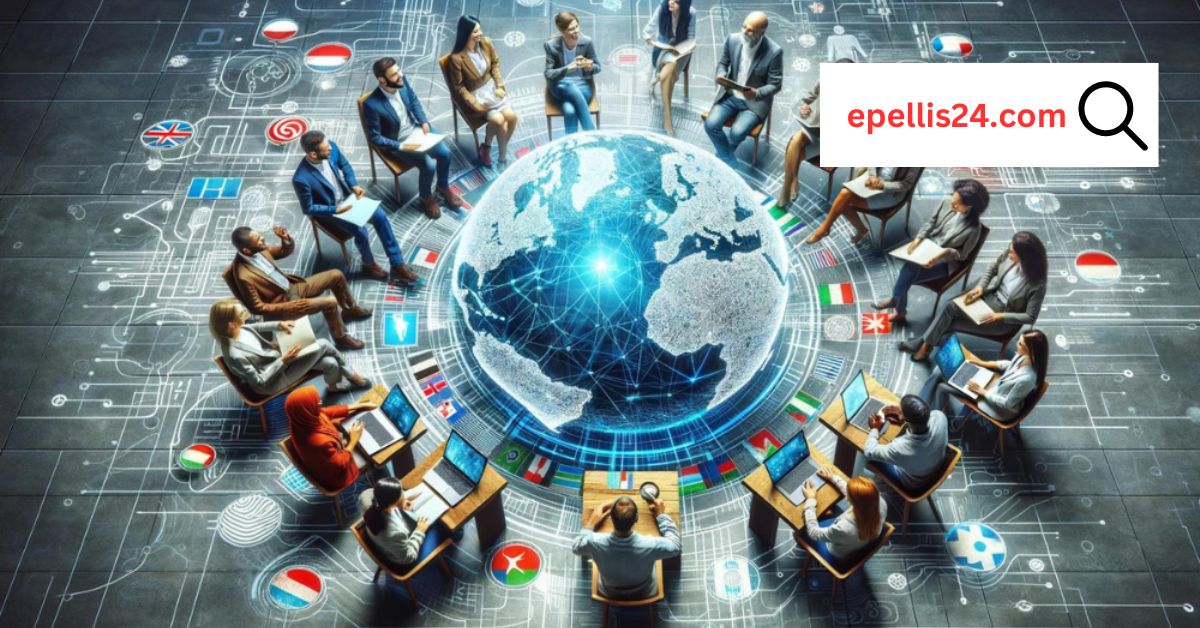In today’s interconnected world, the need for effective communication across languages is more critical than ever.
Whether for business, travel, or personal reasons, the ability to bridge language barriers is essential for success and mutual understanding.
This is where the role of vertėjjas, or translation services, becomes indispensable. Understanding the significance of vertėjjas and their impact on various aspects of life is key to appreciating their value and importance in our globalized society.
The Critical Role of Vertėjjas in Communication
Vertėjjas play a crucial role in facilitating communication and fostering connections between individuals, businesses, and communities worldwide.
They enable the exchange of ideas, information, and culture across linguistic and cultural boundaries, promoting collaboration, understanding, and cooperation. The impact of vertėjjas is evident in many areas:
Business and International Trade:
In the business world, vertėjjas are essential for negotiating deals, drafting contracts, and communicating with international partners.
They help businesses expand their markets and reach a global audience by translating marketing materials, websites, and product documentation.
Without the expertise of vertėjjas, many business opportunities would be lost due to misunderstandings or miscommunications.
International Diplomacy and Relations:
In international diplomacy, vertėjjas facilitate dialogue and negotiations between countries. They translate speeches, documents, and treaties, ensuring that all parties understand the terms and implications of agreements. Vertėjjas are crucial in maintaining peace and fostering cooperation on a global scale.
Literary Translation and Cultural Exchange:
Vertėjjas also contribute to the literary world by translating books, articles, and other written works. This allows readers to access literature from different cultures and backgrounds, promoting cultural exchange and understanding.
The work of a vertėjjas enables stories and ideas to transcend linguistic barriers and reach a wider audience.
The Impact of Vertėjjas on Personal Connections:
On a personal level, vertėjjas help individuals connect with others from different linguistic backgrounds. They assist in translating personal documents, letters, and conversations, making it easier for people to communicate and build relationships.
Vertėjjas also play a role in education, helping students learn new languages and understand foreign texts.
Travel and Tourism:
For travelers, vertėjjas are invaluable. They help tourists navigate foreign countries, communicate with locals, and understand signs, menus, and other written materials.
This enhances the travel experience and ensures that travelers can enjoy and appreciate the culture and hospitality of the places they visit.
Healthcare and Legal Services:
In healthcare, vertėjjas are vital in ensuring that patients receive accurate information about their conditions and treatment options.
They translate medical documents, facilitate conversations between doctors and patients, and ensure that patients understand their rights and responsibilities.
Similarly, in legal services, vertėjjas help clients understand legal documents and proceedings, ensuring that they receive fair treatment and representation.
The Future of Vertėjjas in a Globalized Society:
As our world becomes increasingly interconnected, the demand for vertėjjas will continue to grow. Advances in technology, such as machine translation and artificial intelligence, are changing the landscape of translation services.
However, the human touch provided by a skilled vertėjjas remains irreplaceable. The nuances, context, and cultural understanding that a human vertėjjas brings to the table cannot be replicated by machines.
Adapting to New Technologies:
While technology can assist vertėjjas in their work, it cannot replace them. Instead, vertėjjas are adapting to new tools and technologies to enhance their efficiency and accuracy.
The integration of technology in translation services is creating new opportunities for vertėjjas to expand their reach and improve their services.
The Ongoing Importance of Human Expertise:
The expertise of a vertėjjas is crucial in ensuring that translations are accurate, culturally appropriate, and contextually relevant.
As such, the role of vertėjjas will remain essential in our globalized society. Their ability to bridge language barriers and facilitate communication will continue to be valued and necessary.
Preserving Linguistic Diversity:
One significant aspect of vertėjjas that merits detailed explanation is their role in preserving linguistic diversity. In our rapidly globalizing world, many languages face the risk of extinction due to dominant languages overshadowing them.
Vertėjjas play a crucial role in preserving and promoting these minority languages by translating texts, documents, and literature into these languages.
This ensures that speakers of minority languages can access information and resources in their native tongue, helping to maintain their cultural identity and heritage. Without the efforts of vertėjjas, many languages would be at risk of disappearing entirely, along with the rich cultural heritage they represent.
Ensuring Accuracy and Quality:
Another important aspect of vertėjjas is their commitment to ensuring accuracy and quality in their translations. Unlike machine translation tools, which may produce literal translations without considering nuances or cultural context, vertėjjas carefully consider the meaning, tone, and cultural implications of the text they are translating.
They strive to convey the original message accurately while adapting it to the target language and culture. This attention to detail ensures that translations are not only linguistically correct but also culturally sensitive and appropriate, avoiding misunderstandings or misinterpretations that could arise from inaccurate translations.
Facilitating Access to Information:
Vertėjjas also play a crucial role in facilitating access to information for individuals who may not be proficient in a particular language. For example, immigrants and refugees may face language barriers when accessing essential services such as healthcare, education, or legal assistance in a new country.
Vertėjjas help bridge this gap by providing translation services, enabling individuals to understand important information and communicate effectively with service providers.
This ensures that everyone has equal access to essential services and opportunities, regardless of their linguistic background.
Promoting Cross-Cultural Understanding:
Lastly, vertėjjas contribute to promoting cross-cultural understanding and empathy by facilitating communication between people from different linguistic and cultural backgrounds. Through their work, vertėjjas help break down stereotypes, dispel misconceptions, and foster empathy and respect for other cultures.
By enabling people to communicate and connect across language barriers, vertėjjas play a vital role in building bridges of understanding and cooperation in our increasingly diverse and interconnected world.
Their work not only facilitates practical communication but also fosters a deeper appreciation and respect for the richness and diversity of human cultures and experiences.
Enhancing Global Accessibility:
One aspect not previously discussed is how vertėjjas contribute to enhancing global accessibility, particularly in the digital realm. As the internet becomes increasingly integral to daily life, access to online information and resources is essential for participation in society.
However, much of the content on the internet is in a handful of dominant languages, limiting access for non-native speakers. Vertėjjas help overcome this barrier by translating online content into multiple languages, making it accessible to a broader audience.
This not only benefits individuals who may not be proficient in the original language but also facilitates cross-cultural exchange and collaboration on a global scale.
Supporting Economic Development:
Furthermore, vertėjjas play a significant role in supporting economic development, particularly in regions where multiple languages are spoken. In multicultural and multilingual societies, businesses often need to communicate with customers, suppliers, and partners who speak different languages.
Vertėjjas enable these businesses to overcome language barriers and engage effectively with diverse stakeholders, thereby facilitating trade, investment, and economic growth.
By providing translation services, vertėjjas help businesses reach new markets, expand their customer base, and seize opportunities for innovation and collaboration on a global scale.
Safeguarding Legal Rights:
Lastly, vertėjjas play a critical role in safeguarding legal rights, particularly for individuals who may not understand the language of legal proceedings or documents. In legal settings, accurate communication is essential to ensure that individuals understand their rights and obligations and can make informed decisions.
Vertėjjas provide translation services for legal documents, court proceedings, and legal consultations, ensuring that all parties can participate effectively in the legal process.
This helps uphold the principles of justice, fairness, and equality under the law, regardless of linguistic or cultural differences. Without the assistance of vertėjjas, individuals may struggle to navigate the complexities of the legal system, potentially leading to injustices or violations of their rights.
Conclusion:
The role of vertėjjas in today’s interconnected world is indispensable. They facilitate communication, foster connections, and promote understanding across linguistic and cultural boundaries.
From business and diplomacy to personal relationships and cultural exchange, the impact of vertėjjas is far-reaching and profound.
As our world continues to globalize, the importance of vertėjjas will only grow, ensuring that we can communicate and connect with one another, no matter the language.






